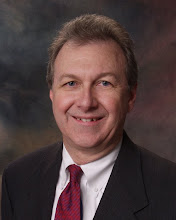Friday, January 27, 2012
Jury Awards Punitive damages for broken gift restrictions
The lesson for charities is to require that all restricted gifts be documented with a written gift agreement. Further, if the charity later changes its mind about the restrictions, it should return the gift.
Tuesday, January 24, 2012
Political Speech for Pastors?
Friday, January 20, 2012
Church operated coffee house NOT exempt!
Tuesday, January 17, 2012
Penalties Double for 2012
For the Form 1099s that are due on February 28, 2012, the failure to timely file Form 1099s penalty is doubling from $50 per Form 1099 to $100 per Form 1099. If you do not have all the information needed to complete a Form 1099 (such as the Social Security number), you can still file it incomplete by February 28. As long as you secure the missing information and file the amended Form 1099 before August 1, 2012, then no penalties will apply.
By the way, if you file the Form 1099 within 30 days after February 28, the $100 penalty is reduced to $30. If you file Form 1099 more than 30 days after February 28 but before August 1, 2012, the penalty is reduced to $60 per Form 1099.
The IRS is projecting to collect big bucks from these penalties over the next few years. You should be checking and double checking that you are issuing a Form 1099 to all businesses providing services to you that is not incorporated and you paid them at least $600 during 2011. This would include sole proprietorships, partnerships and LLCs. You can verify the business information via Form W-9.
Criminal backgroud checks result in $3 million fine!
If background checks are conducted, the EEOC recommends that employers take into consideration the nature and gravity of the offense, the time that has passed since the conviction and/or completion of the sentence, and the nature of the job sought in order to be sure that the exclusion is important for the particular position.
Wednesday, January 4, 2012
Church Musicians are Employees?
In December 2011, the National Labor Relations Board ruled that musicians engaged by the Lancaster Symphony Orchestra and the Plano Symphony Orchestra are employees. In both cases, the Board reversed lower rulings holding that musicians were independent contractors. While musicians were free to decline performing in any program, the symphonies selected the music, dictated the dress, set performance and rehearsal times. In sum, the symphonies exercise sufficient control over the details of the musicians' performance to make them employees. See http://www.foxnews.com/politics/2011/12/30/labor-board-rules-local-symphony-musicians-can-join-union/.
Recently, the American Guild of Organists published a salary survey of organists performing in religious institutions. At the bottom of the salary survey, the Guild observed that according to IRS guidelines the majority of organists working for religious institutions were properly classified as employees. See http://www.agohq.org/profession/salary.htm.
These two decisions reaffirm our position that most musicians engaged by churches are employees, even if they are engaged for only one program.
